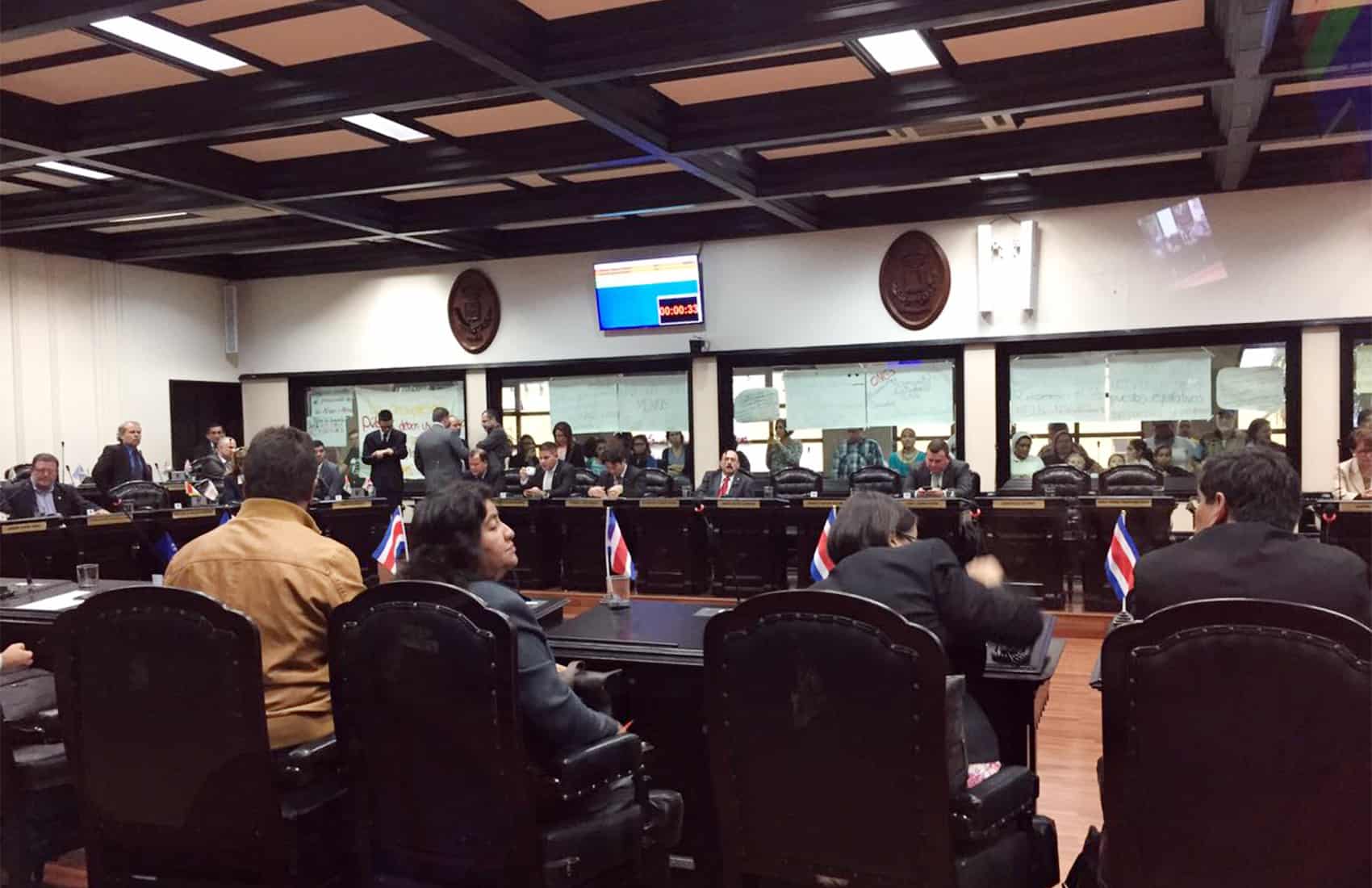For the second time this week a group of lawmakers broke the quorom at the Legislative Assembly session and automatically allowed the approval of the 2017 National Budget without a voting at around 9 p.m. Tuesday.
The unusual aproval of the country’s expenditure plan followed a session where legislators again failed to agree on the figures allocated for public agencies and programs.
The government’s approved budget of ₡8,9 trillion ($15.9 billion) is ₡22 billion ($39 million) lower than the original plan submitted by President Luis Guillermo Solís.
The approved figure came after a series of cuts that mainly reduced the annual budgets of the Public Works and Transport Ministry (MOPT), the Public Health Ministry, the Finance Ministry and several programs from the Public Education Ministry, among others.
MOPT budget cuts will mainly reduce operation of asphalt plants, the purchase of materials for building and repairing public roads, and for the maintenance of other public infrastructure.
Cuts also will prevent the purchase of communication equipment and other supplies for the Traffic Police, investments in infrastructure for the country’s customs and will reduce the number of surveillance operations of the Fiscal Control Police.
One of the most polemic changes is the relocation of 46 percent from the budget of the Child Welfare Office (PANI) to public security programs.
The reduction means that ₡47 billion ($85 million) requested by PANI will instead be allocated to the budgets of the Public Security Ministry, the Justice Ministry, the Judicial Investigation Police and the Prosecutor’s Office.
Cuts in public health budget represent a reduction in funds for programs to prevent and fight Zika, dengue and chikungunya viruses, among others.
The National Meteorological Institute will also see its budget reduced by a third, director Juan Carlos Fallas confirmed during a press conference in Upala on Monday. Fallas has been in the northern Region since last week evaluating weather conditions during the passage in the country of Hurricane Otto.
Vice President and Finance Minister Helio Fallas said reductions in the approved budget will severely impact major infrastructure works such as periodic maintenance of the country’s roadway system.
Fallas on Monday said that “these unfounded cuts will bring serious complications to provide public services.”
President Solís also lamented the cuts and said during a press conference that lawmakers approved a budget “that will seriously affect the operation of several government programs.”
The Finance Ministry said in a public statement that according to estimates of revenue from tax collection, transfers, contributions and other income sources the government in 2017 will collect ₡4.8 trillion.
This means that the remaining ₡4.1 trillion to cover the budget should be financed by loans.
Failed vote
Legislative Assembly rules stipulate that the budget should be voted on a first round vote by Nov. 27 each year, and on a second round no later than Nov. 29.
The budget passed its first round of debate last Sunday during a special legislative session.
The first vote was scheduled for last Thursday but lawmakers suspended the session due to the national emergency alert issued for the arrival of Hurricane Otto.
On Sunday, after various hours of failed negotiations, a group of lawmakers mostly from the National Liberation Party and the ruling Citizen Action Party broke the quorum and forced the end of the session.
According to legislative procedures the budget will be automatically approved as submitted by the Legislative Committee on Financial Affairs in case lawmakers fail to vote by the deadline.
Modifications
Presidency Minister Sergio Alfaro on Monday said in a press release that, if lawmakers approve the cuts, they will send a request to ammend the national budget in January.
Those modifications will aim to allocate more funds to programs for addressing damage caused by Hurricane Otto.
Alfaro also said that they will evaluate options to recover funds redirected from PANI and other public agencies’ budgets.






